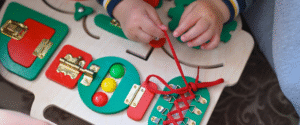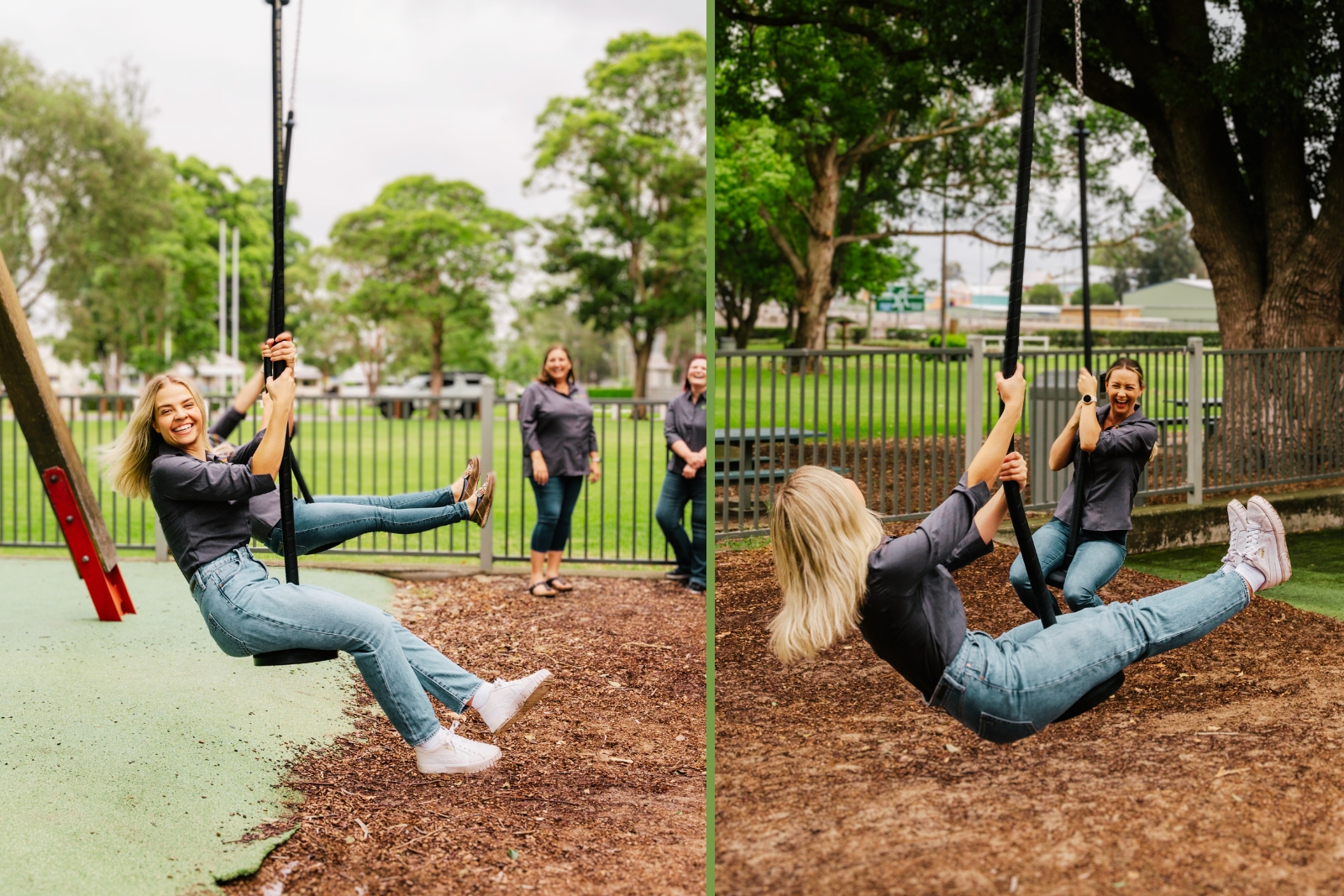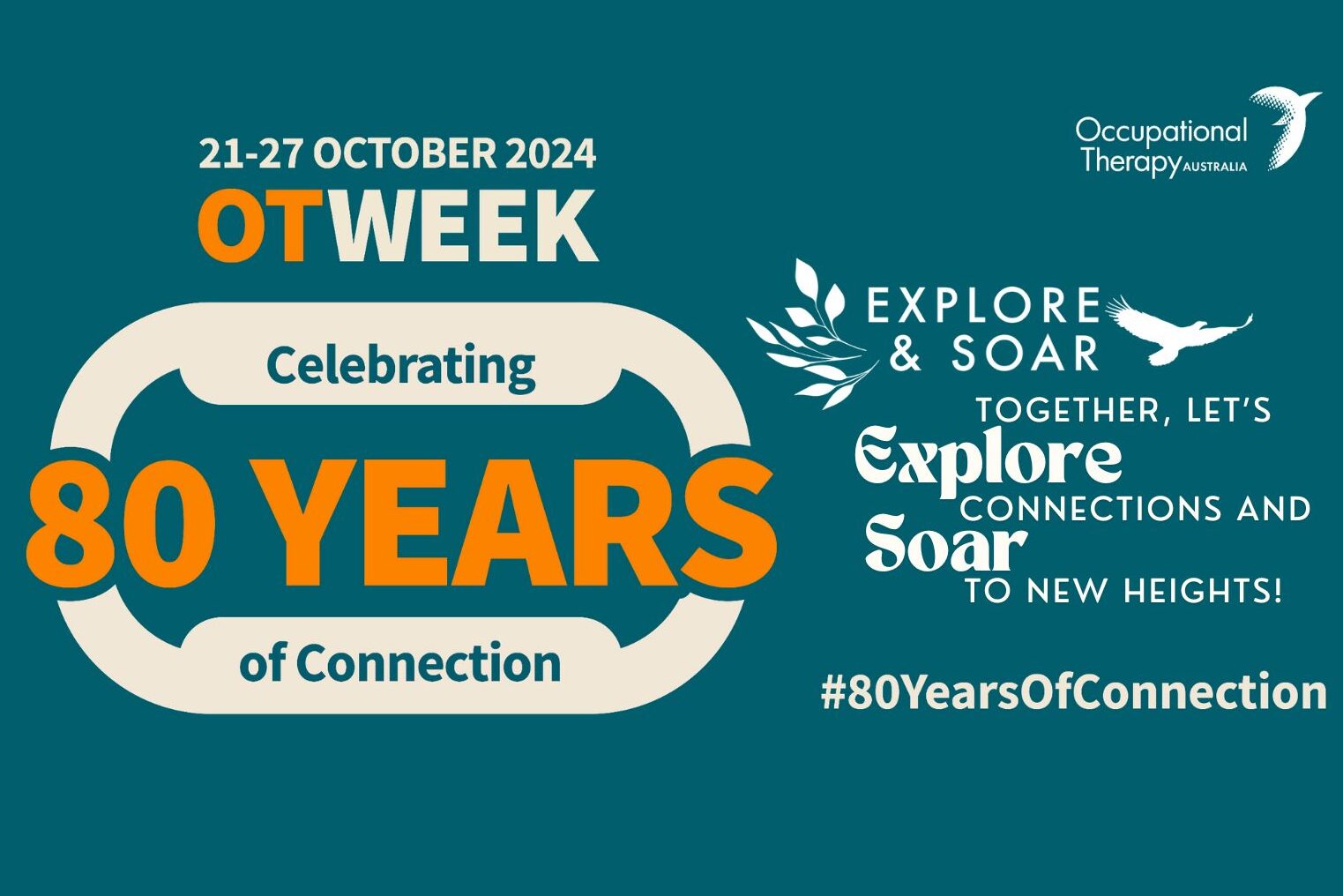
THE POWER OF PLAY: SUPPORTING TRANSITIONS IN YOUR CHILD’S DEVELOPMENT
Did you know that play isn’t just for fun? It’s a powerful tool for your child’s development!? At Explore and Soar, we incorporate play into all our therapy interventions to teach essential skills, including managing transitions.
Throughout the day, children experience numerous transitions—from waking up and eating breakfast to leaving the comfort of home and adapting to the school environment, to name a few. For many children, moving from one activity or situation to another can be particularly challenging. It can be one of the hardest times of their day, but through thoughtful play, we can help children become more comfortable with these moments and build the confidence they need to handle transitions more easily.
The Importance of Smooth Transitions in Effective Communication
Through play, we are constantly communicating, whether verbal or non-verbal, through words, gestures, or facial expressions. These moments require ‘opening’ the ‘communication circle.’ Children share their ideas, thoughts, wants, feelings, and needs while maintaining a back-and-forth exchange in conversation. Lastly, they need to “close” a communication circle, and when one is finished, they need to transition to the next. This can be challenging, as children may need time to think, can be easily distracted by noise or visual activities, or have different interest points that make this transition time extra tricky.
Therapeutic Strategies
Our Occupational Therapists use play therapy alongside the child’s Speech Pathologists, who help children with communication-based transitions, such as speech and language skills.
You will see our therapists using a range of strategies to help in directing the communication and play ideas to make this easier for them:
- Facial Expressions: Use big smiles and animated looks to help children understand emotions and stay connected.
- Tone and Sounds: Varying our tone—We love to use sound to support transitions throughout our play and hold our clients in the moment with us. We whisper, talk louder in critical moments, or use sounds like “uh-oh” to create excitement or focus.
- Body Language: Our bodies communicate too! Shrugging, clapping, and arms crossed or waving to show different emotions such as sadness, frustration, or excitement to help children navigate their feelings during play.
Utilising these strategies not only improves communication with our clients but also provides support during challenging times. This approach allows clients the space to work through difficulties together and transition between uncomfortable feelings and enjoyment while playing. This approach is powerful in supporting the development of Emotional Regulation Skills and Social Skills.
The Magic of Pretend Play
Play is a vital part of development. By as early as 13 months, children begin to use functional play themes. Play is an exciting time when a child is learning all about their everyday life activities like sleeping, eating, and bathing. This early play is a sign of your child’s growing memory, as they can remember something they saw or what you did and reenact this.
As children mature and develop their play skills, they shift from functional to pretend play. This occurs over a period of time, with different skills building upon one another to achieve these skills. This shift to pretend play is paramount as it symbolises that there has been a cognitive shift in their development. They are no longer imitating others but now engaging in activities with intent and a purpose. When children begin developing these skills, they seek solo play or with other children their age, exploring new ways of thinking and creating. (Keep an eye out for an upcoming blog breaking down all information on play).
However, not all children can easily shift, adapt, and be creative in their play themes with others, often finding it more accessible to play by themselves with their own ideas and internal monologue. This can be challenging in social settings like preschool and peer conversations. This is where Occupational Therapy shines! By using the child’s interests and strengths in play, therapists support children in exploring play themes while building their confidence and skills necessary for play with others. Transitioning from single-play to multiple-person play requires different communication strategies and the ability to connect with the child to support their confidence and skills to play.
Strategies to Develop Play
To enhance play skills, consider these strategies:
- Interests in Play: Initiate play with themes and interests to engage the child.
- Creating Challenges: Introduce problems for them to solve together while encouraging collaboration.
- Predictability: Allows the child to be engaged and develop their play skills while establishing a consistent routine that helps children feel secure.
- Familiar Environments: Starting play in a safe, familiar space, such as the home loungeroom, helps ease the transition.
- Humour and Fun: Use playful scenarios to make transitions enjoyable, such as using the child’s toy and self in fun ways, such as getting stuck, falling over, or supporting the child in their play themes and them in transitions.
Working on these skills as an Occupational Therapist helps support children in having the confidence and skill set to transition into new environments, such as preschool and school when playing with other children with more ease and confidence.
Building Skills Through Pretend Play
If there are set skill sets that your children require additional support for, providing opportunities through pretend play, such as using dolls, teddies or trucks, is a great way to support the comprehension of different transitions, help them encounter potential problems through play, as well as resolving those problems. Pretend play is a gateway to helping our children process what is happening around them, learn from them, and understand what that means to them. Have you ever been playing, and your child has said or done something that has reflected your real life? It’s a natural way for them to make sense of the world!
The Importance of Repetition
As with developing any new skill, learning transitions can be challenging and requires repetition, emotional support, structure and predictability. Providing consistent support and opportunities for your children to practice playing with others is paramount in strengthening these skill sets.
Another way to support your children with transitions in play is using storytime. Using different visuals and books helps children understand play themes more and a different modality of learning. Repetition through play will help consolidate their knowledge, make them feel confident when something unexpected happens, and help them transition through those changes.
Remember, all of us are constantly transitioning through changes in our daily lives. Some days, we do it well. Some days, we don’t! This is perfectly normal, and the same is true for our children. If you feel like you need some more tools and strategies in your tool kit, call us so we can help. We’re here to help you navigate this journey together!
Happy Playing!
__________________
If you’d like to chat more, please don’t hesitate to contact us today! Call us on 0477 708 217 or email admin@exploreandsoar.com.au
Until Next Time,
Jess
PUBLISHED NOVEMBER 2024








